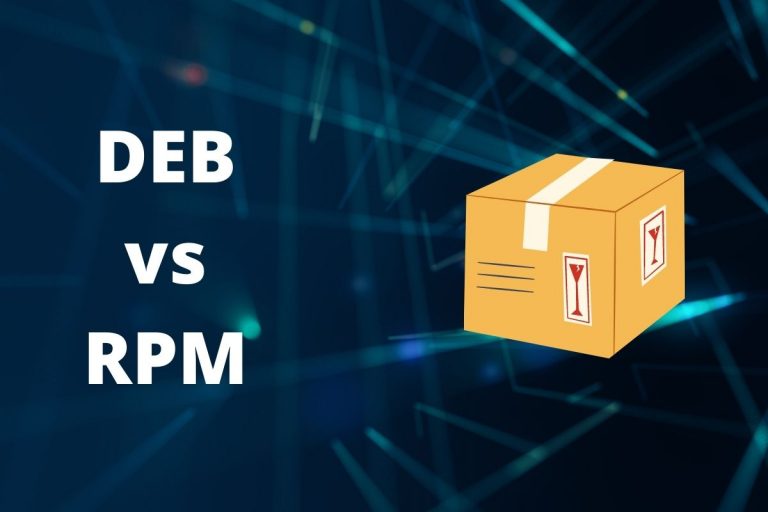What Is The Difference Between Java and JavaScript?
There has always been a hint of confusion when it comes to Java and JavaScript due to their name. Although there are some small similarities, they are quite different.
The main difference between Java and JavaScript is that JavaScript runs in a web-browser only, without compilation. Java is a more complete programming language, requiring compilation and used in many situations like in Android applications for example.
In this article, I’ll give you more details about this two programming language, so you’ll know exactly the differences between them after reading it.
Java
Definition
Java is an object-oriented programming (OPP) language that is designed to have as few implementation dependencies as possible. It is a general-purpose programming language intended to let application developers write once, run anywhere (WORA).
Wikipedia
History
Produced in 1995 at Sun Microsystems, Java was released and has since been acquired by Oracle.
Creator James Gosling created Java, first known as Oak, with his goals being to implement a more uniform and simple language than C/C++, and to create a language that would allow consumer devices to communicate with each other.
The difference Java made with programming languages has been revolutionary in the development of the World Wide Web.
Platform
The internet is saturated with Java-based programming these days, with countless applications enhancing our day-to-day life every day.

Java code runs both in-browser and in a Virtual Machine (VM), allowing it to be used for both front and back-end purposes, which is where their mantra write once, run anywhere comes in to play.
Regardless of your hardware features, operating system, or device, any Java application will run seamlessly. Also, the source code is compiled into an impenetrable bytecode, boosting its overall security.
Language
Java is a statically typed programming language, meaning when writing code, we must declare the type of variable before a value can be assigned.
For example, this variable will hold numbers, another variable will hold text, and another will hold dates, and so on. The catch when writing in a static language is that if your script contains any errors, it will fail to compile until the errors have been fixed. Sometimes it can be hard to find that error among a long page of code.
Capabilities
The versatility behind Java is what allows it to be utilized in a multitude of methods. Although it can be used as an alternative to Flash, JavaScript is more popular and has more functionality, becoming a favorite among developers and programmers.
Here are some examples of where Java code is used:
- Credit card programming
- Android applications
- Desktop applications
- Enterprise-level applications
JavaScript
Definition
JavaScript often abbreviated as JS, is a programming language that conforms to the ECMAScript specification. JavaScript is high-level, often just-in-time compiled, and multi-paradigm. It has curly-bracket syntax, dynamic typing, prototype-based object-orientation, and first-class functions.
Wikipedia
History
In 1990, Brendan Eich, a developer at Netscape, was able to create a programming language in only 10 days.
Originally known as LiveScript, the name change to JavaScript and accompanied Netscape’s introduction of their web browser Java support. With the ability to instruct your computer to interact with the user, after receiving user input, JavaScript allowed the browser to interpret the user’s commands, without compiling.
Platform
JavaScript is mainly known for front-end development; however, it can be effectively utilized for the client or server-side.
JavaScript can either be embedded directly into HTML, implemented as a framework, or run on the server via Node.js. JavaScript’s code can be easily read by anyone since it is written in plain text and not compiled.
Language
In a dynamic scripting language like JavaScript, you can declare a variable without specifying what type of data it is.
The variable is dynamic; a number, a sentence, anything. This dramatically affects the usability and makes it an easier coding language for beginners to pick up. Though dynamic languages are more flexible and save time and space, this can lead to issues at runtime.
Capabilities
JavaScript is known for its innate ability to enhance web pages, making them more interactive and appealing to visitors to your webpage. JavaScript provides application developers with some additional flexibility of the development on their client-side.

Essentially, anything a user interacts on a website utilizes JavaScript. The code is primarily used to enhance web pages by applying some of the following features:
- Stylistic features like titles and headers
- Animations or transitions
- Buttons, search boxes, sidebars
- User polls, or voting systems
Difference Between Java and JavaScript
There has always been a hint of confusion when it comes to Java versus JavaScript due to the obvious constant in their name. Although there are some small similarities, they are quite different.
The most significant difference between the two is that they are two different coding languages. Java is a programming language, whereas JavaScript is a scripting language.
More importantly though, is where and how each language is being used. Javas’ versatility allows you to create compiled programs that run on various platforms.
JavaScript is a more restricted code language that’s only used in-browser. JavaScript is most often used alongside other languages such as HTML to help supplement and add additional functionality.
While JavaScript’s usage tends to be a little more limited due to its dependency on other languages, it’s still an incredible tool that allows complex features to be implemented into web pages. In fact, most modern websites will utilize JavaScript to control media, animate images, and enhance the webpage experience overall.
Utilizing JavaScript with CSS and HTML allows websites to provide the best user experience possible while retaining high performance. This is due to the lightweight design and use of just-in-time compiling which allows the code to run as fast as possible.
Java on the other hand became the first programming language to be used on Mars. NASA utilized the Java language to build the controller that operated the Spirit Mars Exploration Rover in 2004.
Since then, they have also incorporated the language into a number of other projects including the JavaFX Deep Space Trajectory Explorer. This application can generate multidimensional views and models for any plant-moon system or asteroid, and is an incredible demonstration of what Java can accomplish.
Below you can find a quick summary of the main differences between these code languages and their uses.
Comparison table
| Java | JavaScript |
| Object-oriented programming (OPP) language | Object-oriented scripting language |
| Code can be run both in-browser and in a Virtual Machine (VM) | Code is run in-browser only |
| Used within various mobile, desktop and enterprise apps | Used to enhance web pages with styles and animations |
| Static type language | Dynamic type language |
| Objects are class-based, C/C++ Synax | Objects are prototype-based, C Syntax |
| Code is compiled before execution | Code can run directly, without compilation |






